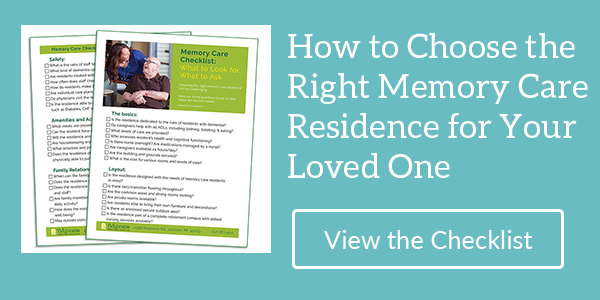
Humans have many things in common despite race, color, creed, or geographic origin. One of those is laughter. From infancy forward, we all laugh, and now science is finding that laughter isn’t just for fun, it’s also beneficial to our health.
According to the Mayo Clinic, laughter’s short-term benefits are real and researchers have documented a variety of positive impacts on the body. The article, “Stress relief from laughter? It's no joke,” notes that the benefits of laughter include:
- Increased oxygen intake which increases endorphins and “stimulates your heart, lungs and muscles.”
- Helping you relax by increasing then decreasing your heart rate and blood pressure.
- Reducing stress through improved circulation and muscle relaxation.
The article also points out long-term benefits such as the release of chemicals called neuropeptides that fight stress, other chemicals that fight pain, and improved mood and coping skills.
For the elderly, laughter therapy is showing promise in treating both physical and mental conditions.
In a 2019 study, patients at an elderly day care center received laughter therapy once a week for four weeks and were found to have benefitted from reduced blood pressure, as well as “alleviation of geriatric depression/bodily pain and improvement of sociability/activity.” Another study looked at laughter during physical activity with seniors and found the combination may help to improve “mental health, aerobic endurance and confidence in their ability to exercise.”
While you might be thinking that sometimes there’s just nothing to laugh about, when it comes to laughter therapy, there doesn’t have to be. Forced laughter can be as beneficial as laughing for a reason and may even become real after a few minutes. In fact, purposeful laughter is at the root of a rising movement to integrate laughing into daily therapy and social activities for people of all ages, including the elderly.
One way to get your daily laughs is laughter yoga, also known as Hasya Yoga. Laughter yoga is designed to get people laughing for no reason while performing yoga breathing exercises, both of which are physically and mentally beneficial. Developed by Indian physician Madan Kataria in the 1990s, laughter yoga has become a movement with more than 5,000 Laughter Yoga clubs around the world. But you don’t need a club, you can participate along with Kataria on his YouTube video.
Whether you are in an organized group setting with a leader or alone at home, you can make laughter therapy a part of your routine and start receiving all of its wonderful benefits. Here are some great resources to help you learn more and get you laughing:
Laughter Yoga University, the official site of Madan Kataria, offers a wealth of information from how to get started with laughter yoga to training opportunities. You can download country-specific information, read blogs and articles, even book a speaker.
Laughter Wellness emphasizes laughter as a path to better mental, physical and spiritual health, and improved quality of life. The Laughter Store also offers e-books and videos on laughter therapy.
Laughter Online University is dedicated to teaching about laughter therapy and positive thinking and living. The Science section also provides plenty of research on the benefits of laughter.
Laughter Yoga Institute provides a range of information about laughter yoga including a blog and an exercise archive. There are also a variety of programs listed including seminars, workshops and “heart-opening Laughter Adventures.”
AARP goes in depth with a variety of articles that include laughter as a healthy therapy for seniors.
Web MD offers dozens of articles on the subject of laughter, how it works and how it can help people with conditions like diabetes, high blood pressure and even cancer.
Science.gov is for the more clinically inclined who want to read the latest scientific research on laughter therapy and how it works.
The National Institutes of Health provides a compendium of professional research in the area of laughter therapy and its health benefits.
The Association for Applied and Therapeutic Humor is a professional organization for laughter/humor therapy providers, but also offers insights for the lay person into how laughter can really help.
The International Society for Humor Studies offers a variety of research and resources for professionals in the practice of humor therapy.
If you’re considering laughter therapy for you or a loved one, remember it is intended to enhance, not replace prescribed therapies and medications. If you’re not sure about laughter therapy, keep in mind that it’s free, you already know how to do it, and there are no negatives impacts if you overdose. With laughter, the more you do it, the better you’ll feel!

